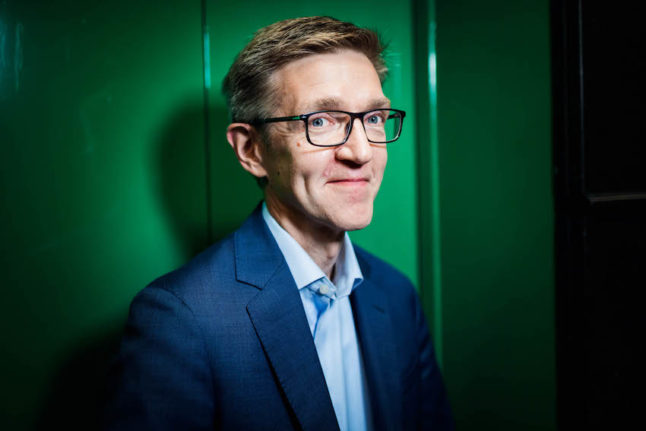The outcome of the meeting will be published on Thursday.
Economists said the decision was almost too close to call as recent data has shown the economy slowing faster than the central bank expected.
“We think it is really fifty-fifty, it’s a close call,” said Anna Raman, economist at Handelsbanken.
She said that with inflation at 4.4 percent in July, a rate hike was the more likely outcome, “but we wouldn’t be surprised if they stay on hold”.
Whether or not the central bank raises rates this week, it will outline a milder picture for the path of interest rates ahead than it gave in July, when it last tightened policy.
Then the Riksbank said it saw rates rising to 5.0 percent this year and not falling until the third quarter of 2009.
Henrik Mitelman, chief fixed income strategist at SEB, said the market was pricing in a roughly 50 percent chance of a rate hike on Thursday, a very small chance of a cut in December and a 50 percent likelihood of looser monetary policy already in February next year.
Although the Riksbank has outlined two more hikes this year, it is in a bind.
Headline inflation is well above its 2 percent target and above its 3 percent tolerance ceiling, pushed up mainly by higher energy, food and higher interest costs.
But after years of strong growth, the economy is shifting down gears.
Inflation expectations — a key focus for the Riksbank — are falling.
Sweden turned in its worst performance in seven years in the second quarter, registering no growth at all after a meagre 0.1 percent quarter-on-quarter in the first three months of 2008.
“We have had such weak indicators lately … GDP … retail sales, you name it, it’s really weak,” said Raman at Handelsbanken.
This week Sweden’s purchasing managers’ index, was below 50 points — the nominal line between a growing and a shrinking economy — for only the second month since 2003.
Sub-indices in the PMI figures showed falling production, employment and orders.
Economists believe the worsening economic outlook will lead the central bank to take a milder view of where rates are heading than it outlined in July.
Even back then, board members Lars Nyberg, Irma Rosenberg and Barbro Wickman-Parak wanted a lower rate path, believing slowing economic growth would relieve pressure on prices.
Governor Stefan Ingves used his casting vote against them.
Knut Hallberg, economist at Swedbank, said that the Riksbank would probably raise rates this week, but indicated that the tightening cycle had now ended.
“The rate path will be roughly the same (as in July), but it will peak at 4.75 percent,” he said.
Despite this, he said Swedbank expected rates to start falling in spring next year.
Fourteen of 24 economists polled by Reuters last week believed the Riksbank will tighten monetary policy this week.
Only one saw rates higher than 4.75 percent at the end of the year. Two saw rates falling to 4.25 percent and ten analysts saw rates at 4.50 percent for the rest of the year


 Please whitelist us to continue reading.
Please whitelist us to continue reading.